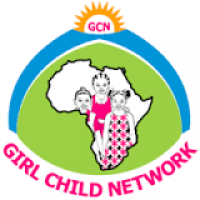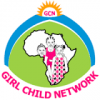In 1995, twenty-five Kenyan women went to Beijing for the Fourth World Conference on Women. Amid discussions of poverty, health, violence, and education, they called delegates to consider the unique experience of the girl child. They knew that issues like child marriage, female genital mutilation, and lack of access to education were all too real for girls they knew and girls around the world.
When they left Beijing in September of 1995, these women had the Beijing Declaration and Platform for Action, which outlined nine objectives for work related to the girl child. They also had a plan for making these objectives a reality in East Africa: connect everyone working with girls to create a unified and informed network. For the next three years, they built a strong, field-tested knowledge base.
In 1998, Girl Child Network officially registered as an NGO in Kenya. Soon after, in 2000, one of the original visionaries came to work for GCN full time. Mercy Musomi is still our Executive Director today. She has never stopped dreaming—or sharing her dream—of a brighter future for girls in East Africa.
Since then, we have grown from a staff of one to a staff of over 30. We now connect over 300 organizations that are working to protect and promote the rights of girls and boys in Africa. We directly implement health and education projects, and we’ve used our expertise in gender and child rights to carry out research and influence policy. Our gender-sensitive and rights-based approach keeps the focus on the girls and reminds them that they have the power to build the world they want to live in!
Our Strategy
We are rights-based.
A rights-based approach starts by assuming that every single person deserves certain things, just because they are human. Because we focus on child rights, we talk a lot about the Convention on the Rights of the Child, which names rights like free primary education and health care services.
The way we see it, if you look at a certain right, there are two groups of people involved: those who hold the right (rights-holders) and those who are responsible for making sure that the rights-holders get what they deserve (duty-bearers). We work to empower rights-holders to claim their rights. At the same time, we support duty-bearers as they fulfill their responsibilities. By building the capacity of rights-holders and duty-bearers, we create a sustainable system run by people within a community—not outsiders.
We are gender-sensitive.
Globally, two-thirds of adults who aren’t literate are women, but less than one-fourth of parliamentarians are. In many of the communities where we work, we see female genital mutilation, child marriage, adolescent pregnancy, and gender-based violence. All of these issues affect girls and women more than they affect boys and men. That’s why, when we establish our Rights of the Child clubs, we invite three girls for every two boys. As we discuss how children can protect their rights, we encourage girls to take the lead in sharing their experiences and dreaming up solutions. After all, they’re the experts on these issues, and they have the most at stake.
But the boys are also important members of the clubs. As members, they are empowered to stand up for their own rights, and to stand with their sisters, cousins, and other girls as allies in the fight for equity. When we choose creative and resourceful leaders regardless of their gender, ethnicity, or abilities/disabilities, everyone benefits from a stronger society. So at the end of the day, we’ve all got skin in the game.


